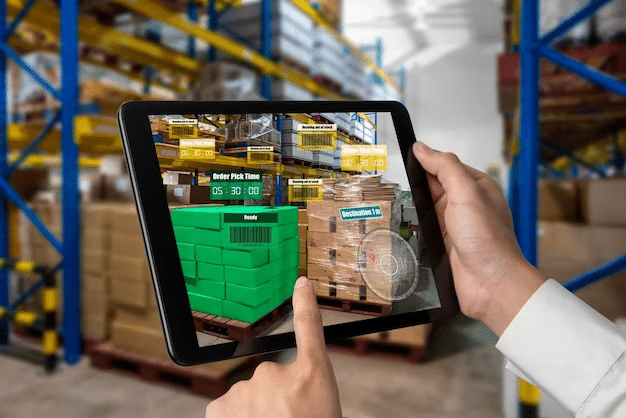
Understanding the Importance of Retail Ops Intel
Savvy retailers continuously gather cross-channel data to deeply understand operations and customer behavior, leveraging intelligence to gain an edge. Integrated analytics like heat maps, RFID inventory tracking, sentiment analysis, and predictive algorithms optimize everything from staffing to supply chain. When guided by intelligence, retailers operate smarter – stocked shelves, enticing promotions, and elevated satisfaction. In retail, data-driven insights are key currency, allowing brands to swiftly act and provide personalized, relevant, frictionless shopping. Operational intelligence reduces and eliminates uncertainty and opens the door to a better retail future.
A Comprehensive Guide to Retail Ops Intel
What is Retail Ops Intel?
Retail Ops Intel, also known as Retail Operations Intelligence, forms the backbone of an effective retail solution. It refers to the data-driven insights that enable businesses to optimize various aspects of their retail execution such as inventory management, sales forecasting, visual merchandising, and customer service.
Definition of Retail Ops Intel
Retail ops intel can be defined as the tactical usage of data to drive retail operations and customer service excellence. This open-source intel helps brands proficiently carry out tasks like demand planning, stock optimization, tracking competitive intel, and more.
The Role of Retail Ops Intel in the Industry
Retail ops intel is increasingly becoming a critical part of the open retail initiative. Its importance lies in its ability to centrally manage retail operations and meet shopper expectations, giving brands a competitive edge. It also powers visual merchandising, helping retailers create compelling in-store environments that drive sales.
Gathering Retail Ops Intel
Gathering rich retail ops intel is essential for a robust retail strategy. This involves utilizing point-of-sale data, leveraging customer feedback and reviews, and monitoring competitors’ strategies with competitive intelligence tools.
Utilizing Point of Sale Data
Point of Sale (POS) data, which includes transaction details and customer purchase history, is a treasure trove of retail ops intel. Analyzing this information can provide insights into sales trends, customer purchasing habits, and product performance, which can be leveraged to improve retail operations.
Leveraging Customer Feedback and Reviews
Customer feedback and reviews are an often-underutilized source of retail ops intel. These provide direct insights into customer preferences, pain points, and overall satisfaction. Brands can use this information to improve their product offerings, customer service, and overall retail experience.
Monitoring Competitor’s Strategies
Monitoring competitors’ strategies is a substantial part of gathering competitive intel. Retailers can make use of competitive intelligence tools to get comprehensive information about competitors’ pricing strategies, product mixes, and marketing tactics. This information optimizes the development of better strategies and promotes successful retail execution.
Analyzing Retail Ops Intel
Identifying Trends and Patterns
With competitive intelligence tools at your disposal, you can go deeper into retail ops intel to identify prominent market trends and customer patterns. By analyzing large data sets of retail operations, you are able to track behaviors like the peak shopping hours, popular products, and customer preferences.
Measuring Key Performance Indicators (KPIs)
KPIs play an important role in understanding the health of your retail business. By incorporating retail ops intel, measuring KPIs such as sales per square foot, conversion rates, or customer retention rates can help provide actionable insights. These insights can help you make data-driven decisions to drive success in the competitive retail market.
Conducting Market Research
Competitive intel is not just about inspecting your own operations, it is also about understanding the moves and strategies of your competitors. Using competitive intelligence tools you can keep an eye on your competitors’ pricing strategies, product launches, or marketing campaigns. Such a retail solution will allow you to stay ahead and gain a competitive edge.
Implementing Insights from Retail Ops Intel
Improving Inventory Management
One of the biggest challenges in retail ops is inventory management. With the right data insights from retail ops intel, you can predict demand, manage stock levels, and centrally manage stores to avoid out-of-stock or over-stocked situations. This increases revenue and improves customer service.
Optimizing Pricing and Promotions
Using retail ops intel, you can create dynamic pricing strategies that can suitably change according to market fluctuations. For example, a competitive intelligence tool can help identify when competitors are running seasonal promotions, allowing you to match or beat their prices and win customers over.
Enhancing Customer Experience
At the heart of it all lies the ultimate goal of enhancing customer service. With the help of retail ops intel, you can personally tailor experiences, offer personalized promotions, and improve overall customer service.
Tools and Technologies for Retail Ops Intel
Modern technology has dramatically transformed the retail sector. The rise of the open retail initiative, competitive intel tools, and other retail solutions has increased the ability to optimize operations in stores and catalogs alike and to provide superior customer service.
Point of Sale (POS) Systems
The heart of retail ops intel often lies in the POS system where transactions occur, customers interact, and valuable data is captured. A good retail strategy leverages POS data to understand customers and improve shopping experiences. Robust POS can also manage inventory, sales reports, and buying trends.
Customer Relationship Management (CRM) Software
CRM software is crucial to improving customer service and relationship management in the retail sector. It provides you with the ability to centrally manage customer information, analyze customer data and effectively engage with your customers to improve sales and customer service.
CRM systems also generate valuable competitive intel. By examining the buying habits, preferences, and interactions of your customers, you can develop strategies that address their specific needs and desires, giving you an additional competitive advantage.
Business Intelligence (BI) Tools
For data-driven decision-making, business intelligence tools are invaluable. These tools turn raw data into meaningful insights, allowing for improved visual merchandising, forecasting, and other strategic retail execution decisions – all central to an effective retail ops intel strategy.
Using BI tools, retail businesses can analyze sales data, identify trends and patterns, and drive revenue growth. They provide the competitive intelligence needed to stay ahead in the game and make informed decisions.
The Future of Retail Ops Intel
The future of retail ops intel is being shaped by the integration of technology at several touchpoints – from point of sale data collection to inventory management.
Artificial Intelligence and Machine Learning
AI and ML are evolving retail by enabling more informed and strategic decisions. These competitive intel tools predict customer behavior, negotiate prices and promotions, and personalize service. They are redesigning retail to be more efficient, informed, and customized, fundamentally pushing the boundaries of what’s possible.
Predictive Analytics in Retail
By leveraging point of sale data, predictive analytics help businesses anticipate and adapt to future trends. They create targeted marketing campaigns, optimize inventory, and accurately predict customer buying habits. Competitive intelligence predictive analytics provide challenges for businesses to proactively plan and strategize rather than reactively adapt.
Responsive Supply Chain Management
In the age of the customer where experience is a priority, the ability to quickly respond to demand changes promises a competitive edge. AI-based supply chain management anticipates demand, manages inventory, and dominates markets. Responsive supply chain management caters instantly to customer needs, increases efficiency, and satisfaction, and retains more customers.
Key Take-Aways
Retail ops intel offers a promising future, and the sooner businesses adapt and integrate this into their operational strategy, the faster they can ensure sustained growth and success. The future of retail ops intel truly is an exciting prospect.
The Retail Operations Experts at T-ROC Global leverage our advanced analytics platforms and decades of customer data to provide actionable intelligence that optimizes your inventory, merchandising, staffing, loss prevention, and optimized retail executions. Learn more about our technology solutions designed to accelerate your sales, and schedule a meeting with us today.









